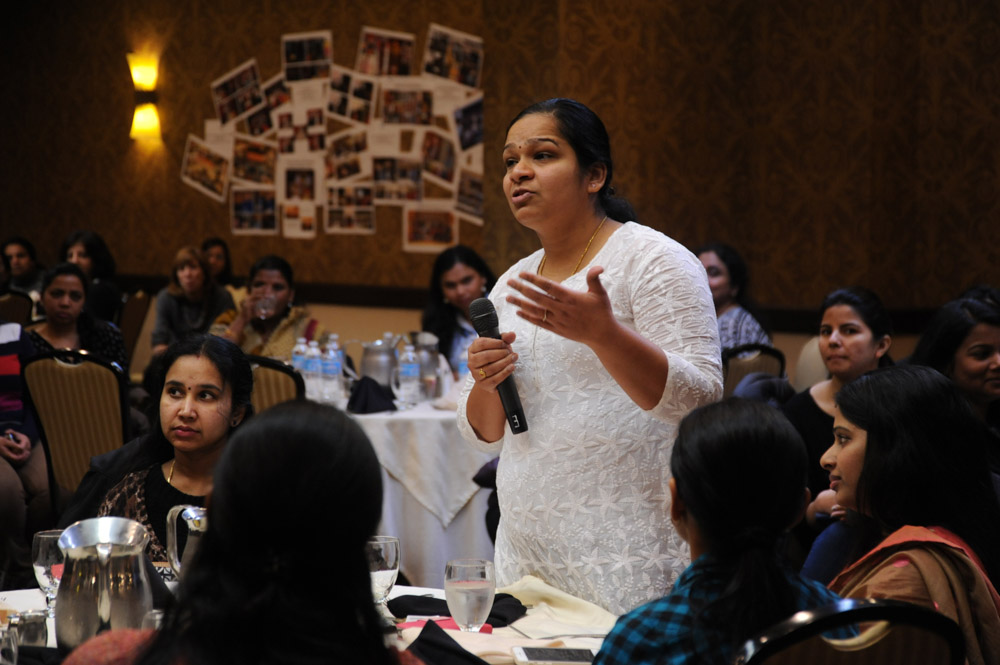A city council meeting is a gathering of the elected officials who make up the governing body of a city or municipality. These meetings are typically open to the public and provide a forum for council members to discuss and make decisions about issues affecting the municipality they serve. The council may discuss a wide range of topics, including local ordinances, budget proposals, zoning changes, and development plans, among others. In addition, council meetings often provide an opportunity for people to voice their opinions or concerns about issues affecting the city of town. According to research developed by The National Research Center (NRC) for Governing, “only 19 percent of Americans recently surveyed contacted their local elected officials over a 12-month period, while about a quarter reported attending a public meeting.”

City Council meetings are important for civic engagement for several reasons:
- Transparency: Meetings provide a transparent and open platform for citizens to observe and understand the decision-making process of their government. This promotes transparency and accountability, and helps to build trust between citizens and their elected officials.
- Public input: These meetings provide a forum for people to voice their opinions and concerns about municipal operations and the issues affecting the city or town, which can influence the decisions made by the Council.
- Public involvement: By attending meetings, participants can stay informed about the issues and become more involved in the decision-making process. This can lead to greater involvement and empowerment.
- Democracy: Participating in meetings is a key way for citizens to exercise their democratic rights and to hold their elected officials accountable.
Public meetings are an important part of the democratic process, and provide a valuable opportunity for citizens to engage with their local government and have a say in the decisions that affect them.

Understanding City Council Meetings
A city council meeting is a gathering of elected officials who represent the citizens of a city or municipality to discuss and make decisions on issues affecting the local community, such as budget allocations, city policies, zoning regulations, and other important matters. The city council is responsible for passing local laws and regulations, as well as overseeing the implementation of those laws. There are several different types of council meetings, including:
- Regular meetings: These are the most common type of council meeting and are usually held at regularly scheduled times, such as monthly or bi-weekly.
- Special meetings: These meetings are called to address a specific issue or topic that requires immediate attention and cannot wait until the next regular meeting.
- Work sessions: These meetings are less formal than regular meetings and are designed for the council to discuss and work on issues in more detail. They may not include public comment periods or formal votes.
- Joint meetings: These are meetings between the city council and other governmental bodies, such as the school board or county commission.
- Public hearings: These meetings are designed to gather input from the public on specific issues, such as proposed zoning changes or new developments.
- Closed sessions: These are private meetings that are not open to the public. They are typically held to discuss legal or personnel matters that cannot be discussed in public.
The type of meeting held will depend on the specific needs and issues facing the municipality, and the agenda and format of the meeting may vary accordingly.
Ready to make your voice heard? Join Instant Input now and shape your city’s future with just a few clicks!
Overview of a Regular City Council Meeting
While the format and specific agenda can vary depending on the municipality, a typical meeting usually includes the following components:
- Call to order: The meeting is officially opened by the council president.
- Roll call: Members of the council are called by name to ensure that a quorum (the minimum number of members required) is present.
- Approval of minutes: The minutes of the previous meeting are reviewed and approved.
- Public comment period: Members of the public are given an opportunity to speak on any issues of concern or interest that are not specifically listed on the agenda.
- Reports from city officials: City officials, such as the city manager, police chief, or public works director, may provide updates on the status of various city projects and initiatives.
- Old business: Issues that were discussed previously are revisited and updates are given.
- New business: Items that have not been previously discussed are brought up for consideration and action by the council.
- Ordinances and resolutions: The council may vote on new ordinances or resolutions related to issues such as zoning changes, budget allocations, or other policy decisions.
- Council member comments: Members of the council may make statements about issues of concern, such as cost and schedules.
- Adjournment: The meeting is formally closed by the council president.
Throughout the meeting, members of the council may ask questions of city officials or members of the public who have provided input. The meeting is generally open to the public and may be broadcast on television or online.
Rules and Procedures of City Council Meetings
The rules and procedures are typically outlined in a set of bylaws or parliamentary rules adopted by the council. Some common rules and procedures include:
- Quorum: A minimum number of council members must be present in order to conduct official business.
- Meeting Agenda: The agenda is typically prepared in advance and distributed to council members and the public. Only items listed may be discussed or voted on during the meeting.
- Public comment: A designated period of time is set aside for members of the public to speak on issues of concern or interest. Persons may be required to sign up in advance and adhere to time limits.

- Motions and voting: Council members may make motions and vote on issues during the meeting. Typically, a motion requires a second before it can be discussed and voted on.
- Rules of debate: Council members may be required to follow specific rules of debate, such as addressing the chair and not interrupting other speakers.
- Closed session: A closed session may be held to discuss certain matters, such as legal or personnel issues. These sessions are not open to the public.
- Minutes: Minutes are typically taken during the meeting and may be published online or made available to the public upon request.
The specific rules and procedures for city council meetings can vary depending on the municipality and the governing bylaws or parliamentary rules in place.
Preparing for City Council Meetings
There are several ways to find information about upcoming meetings:
- Visit the city’s website: Many municipalities post information on their website, including the date, agenda and schedule.
- Contact the city clerk office: The city clerk office is often responsible for maintaining records, including schedules, agendas and minutes. They can provide information on how to access materials.
- Sign up for email or text alerts: Some municipalities offer email or text alerts to notify residents about upcoming the next meeting, agendas, and other important information.
- Check local newspapers: Local newspapers may provide information about upcoming city council meetings, including times and locations.
- View recordings of previous meetings: The schedule for upcoming meetings is often discussed, so attending in person or watching a recording can provide information. Additionally, reviewing the meetings of municipal boards or commissions may also be useful.
There are several resources available to help citizens find information and they can be a valuable way to stay informed and engaged in local government.
Reviewing Agendas and Materials
To review materials for a meeting, follow these steps:
- Visit the city’s website: Many municipalities post agendas and related materials online. Look for a section of the website dedicated to city council or government, and check for information about upcoming meetings.
- Look for the agenda: This document will typically outline the topics to be discussed during the meeting. Determine which items are of interest or relevance to you.
- Look at supporting materials: Supporting materials, such as reports, presentations, or proposed resolutions, may be included with the materials. These materials can provide additional context and detail about the issues to be discussed.
- Contact the city clerk office: If you are unable to find information or supporting materials online, contact the city clerk’s office for assistance. They may be able to provide access to these materials or offer additional guidance on how to access them.
- Go in person: If possible, attending in person can provide an opportunity to review materials firsthand and to ask questions or provide feedback during the meeting.
Overall, reviewing materials is an important way to stay informed and engaged in local government. By understanding the issues to be discussed and the proposed actions to be taken, citizens can provide valuable input and help shape decisions that affect them.
Identify Issues of Concern to You
To identify issues of interest or concern, follow these steps:
- Check the agenda: Read about the issues to be discussed to determine which items are of interest or concern to you.
- View supporting materials: Supporting materials, such as reports, presentations, or proposed resolutions, may be included. These materials can provide additional context and detail about the issues to be discussed.
- Check Instant Input: Local projects posted on Instant Input can help you identify projects near your home or workplace that interest you. Instant Input project profiles identify information about projects being planned, designed or constructed, and there may be an opportunity to learn about project schedules and background documents.

- Attend the meeting in person or virtually: Attending the meeting provides an opportunity to hear firsthand the discussions and debates around the issues of interest or concern. You may also be able to provide input or ask questions during the designated public comment period.
- Contact city officials: If you are unable to go and you have additional questions or concerns, consider contacting your city council member, mayor, or other relevant city officials to discuss the issue further.
- Follow up: Afterwards, read the minutes or recordings of the meeting to ensure you have a full understanding of the discussions and actions taken.
By reviewing issues of interest or concern, citizens can stay informed and engaged in local government, and help shape decisions that affect them.
Streamline your community engagement process with Instant Input. Sign up now and start collaborating on city projects that matter to you.
How to Participate in City Council Meetings
To learn more about your council, you can typically follow these steps:
- Check the meeting schedule: The city’s website or local newspapers may provide information about the date and schedule for upcoming city council meetings.
- Determine the meeting location: Council meetings may be held in a variety of locations, such as city hall or other public buildings. Check the meeting schedule or contact the city clerk’s office to determine the meeting location. Meetings are also livestreamed and recorded for on-demand viewing.
- Arrive early: Arrive at the meeting location, typically Council Chambers, early to allow time to find parking, locate the meeting room, and sign in if required.
- Check for special instructions: Note that some council meetings may have special instructions for attendees, such as sign-up sheets for public comment periods or rules for recording the meeting.
- Listen to or speak during the public comment period: Many council meetings include a designated time for comment. If you wish to speak during this time, check for any rules or guidelines and sign up if required.

- Follow etiquette: Be respectful of other attendees and follow any rules or guidelines for conduct.
Attending a meeting can be an important way to stay informed and engaged in local government. By attending and participating in public comment periods, citizens can help shape decisions that affect them and hold local officials accountable.
Experience the future of public participation with Instant Input. Stay connected and informed about local projects. Create your account today!
How to Provide a Public Comment at City Council Meetings
If you have a topic you’d like to comment to city council, there are a few things to know in advance of your moment to speak.
- Wait for your turn: During the designated public comment period, wait for your turn to speak. If a sign-up sheet is required, your name will typically be called in the order in which you signed up.
- Address the council: When it is your turn to speak, address the council members directly and begin by stating your name and any relevant affiliations.

- Keep your input brief and to the point: Public comments are often limited to a specific time frame, so it is important to keep your statement brief and focused. Be sure to clearly state your position and any specific actions or recommendations you are requesting.
- Be respectful: During your statement, be respectful of other attendees and avoid personal attacks or insults. Remember that you are addressing elected officials who are representing the interests of the entire city or town.
Giving a public comment can be an important way to voice your concerns or opinions and to help shape decisions that affect your community. By following the rules and guidelines, you can ensure that your input is heard and considered by local officials.
Other Ways to Comment to City Council
If you are unable to go in person or prefer not to speak during a public comment period, there are other ways to provide comment to city council. These include:
- Email: Many city council members have email addresses listed on the city’s website. You can email council members directly to share your concerns or opinions on a specific issue.
- Phone: You may be able to contact council members by phone, either by calling their individual office or through a city hall receptionist.
- Written letter: You can write a letter to your council member or the planning office expressing your concerns or opinions. You can mail the letter or deliver it in person to their office.
- Online contact form: Many city websites have an online contact form that you can use to send a message directly to council members.
- Social media: Some city council members may have social media accounts that they use to communicate with constituents. You can follow these accounts and send messages or comments to council members through social media.
- Instant Input: Looking for an easier way to engage with your local government? Use Instant Input to identify the latest local projects and give feedback to municipal decisionmakers. Sign up today to get started.
By utilizing these alternative methods for providing comment to city council, citizens can still have their voices heard and help shape decisions that affect their community. It’s important to remember to be clear, concise, and respectful when communicating with elected officials, regardless of the medium used.
Follow Up After City Council Meetings
After a meeting, you may want to follow up and stay informed about the decisions made and any ongoing developments related to the issues discussed. Here are some ways you can stay informed:
- Minutes: Most city council meetings have minutes that are recorded and made available to the public. Check the city’s website for minutes or contact the city clerk’s office to obtain a copy.
- Agenda and materials: Review the agenda and any materials provided to council members. These materials may provide additional background information on the issues discussed.
- Contact city council members: You can contact council members directly to follow up on issues discussed or to request additional information.
- Local news coverage: Check local newspapers or news websites for coverage of the meeting and any decisions made.
- City website: Check the city’s website for information, schedules, and other information related to local government.
- Social media: Follow city council members or the city’s official social media accounts for updates and information related to local government. You can also connect with organizations that align with your interests to learn more and join social media conversations.

By following up after a city council meeting and staying informed about ongoing developments, citizens can continue to engage with local government and hold elected officials accountable.
Conclusion
In conclusion, participating in city council meetings can be a powerful way to have your voice heard and to influence the decisions that affect your communities. By following the rules and procedures for public comments, reviewing materials, and staying informed afterwards, citizens can engage with local government and help shape the future of their communities. Whether attending in person or providing feedback through alternative channels, every citizen has a role to play in local government.

We encourage everyone to take advantage of the opportunities to stay engaged in local issues. Together, we can work towards a more transparent, inclusive, and responsive local government. So, take action in the next city council meeting to make your voices is heard and help shape the future of our communities.
Frequently Asked Questions
About Us
What is the purpose of a council meeting?
The purpose of a city council meeting is to provide a forum for elected officials to discuss and make decisions on issues that affect the community. These meetings are typically held in public and provide an opportunity for members of the community to voice their opinions on matters that are being considered by the council.
Can anyone attend a local council meeting?
Yes! In most cases, anyone can attend a meeting. There are some specific circumstances that require them to be closed, such as a discussion about confidential information. It’s a good idea to check with your local government to confirm the time, location and any rules or requirements for attending a meeting.
How do you introduce yourself at a city council meeting?
Introduce yourself by stating your name and where you live (e.g. “My name is Jane Smith, and I live at 123 Main Street”).
How you do speak in front of city council?
Consider what you want to say and how you want to say it. Be concise, clear, and respectful. Practice your remarks in advance to ensure that you can deliver them confidently and within the allotted time.
